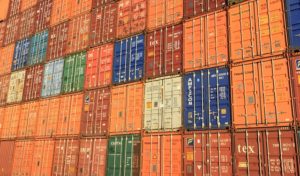THE Alliance of Concerned Truck Owners and Organizations (ACTOO) is planning to hold a strike this month to highlight its protest over unresolved issues concerning the return of empty containers.
ACTOO president Ricardo Papa, in a letter to Association of International Shipping Lines (AISL) general manager Atty. Maximino Cruz dated June 14, said the organization “is now in preparation for a more drastic and decisive action to finally address the issue of empty return.”
“Backs against the wall, we have decided to launch a truckers’ strike within this month,” he added.
Papa, in the letter, also informed Cruz that ACTOO will no longer participate in the crafting of a memorandum of agreement (MOA) between AISL and several trucking organizations to address issues with empty returns.
The crafting of a MOA was an offshoot of the threat last March by the Alliance of Truckers and Customs Brokers to stop carrying the cargoes of four international shipping lines to protest the continued delays in returning empty containers, a long-standing issue with foreign carriers.
The Alliance of Truckers and Customs Brokers is composed of the Haulers and Truckers Association in the Waterfront, Inc., Aduana Business Club, Inc., Inland Haulers and Truckers Association, and Professional Customs Brokers Association of the Philippines.
Earlier, the planned April 1 strike was suspended after AISL advised its members to immediately implement two agreed measures to address some issues on empty returns. Customs Commissioner Isidro Lapeña also intervened, suggesting the creation of a MOA to further fine-tune the details of the two agreed measures.
After the initial talks, several dialogues were held to craft the MOA, which were attended by AISL, the Alliance, ACTOO, Confederation of Truckers Association of the Philippines (CTAP), and other involved parties.
Hitting a snag
In a text message to PortCalls on June 20, Cruz said the last dialogue “hit a snag” as the two major trucking groups—ACTOO and CTAP—were not present. He said, however, that discussion continued with the other groups and “they will be formally submitting their proposed schedule of detention and diversion rates to AISL which we will present to our members for their comments.”
ACTOO’s Papa said the crafting of a MOA “is a futile attempt to solve said problem as it evades the central issue which is space.”
“No amount of discussions or meetings would bear fruit as long as we do not recognize the glaring reality that we desperately need additional space for empty containers—a problem which the shipping lines, first and foremost, should address. No talks on D.O.s (delivery orders), charges, penalties or e-mails would solve the problem,” Papa stated.
He said foreign liners “should find additional areas to keep their empty containers and not pass the burden on to truckers who, for a long time now, have been custodians/yayas of the empty boxes, losing significant earnings in the process.”
Papa said his group also questions the composition of the participating groups crafting the MOA.
Earlier, AISL president Patrick Ronas acknowledged that while the volumes of imports have grown, the number of container yards, specifically in Metro Manila, has not. The Philippines, being an import-driven country with three imports for every one export, has many empty containers.
To help address the issue of empty returns, he said the association has developed the GoFast system—an online reservation system envisioned to interconnect stakeholders directly involved in empty-container returns, such as shipping lines, truckers, and customs brokers, to depots.
Ronas said they see automation of empty-container returns as the way forward in solving current issues and providing visibility for stakeholders involved in the process. He added that GoFast will also help ease the problem with capacity at container yards.
AISL started the operation of GoFast in 2015 as its contribution to the long-term solution to the problem of cargo accumulating at Manila ports.
However, not all AISL member liners are fully interconnected to the system right now. As of September last year, more than 20 shipping lines are connected in varying phases to GoFast, according to Leo Morada, chief executive officer of Cargo Data Exchange Center, Inc., which developed and implements the system.
Ronas said AISL aims to have more shipping lines connected to GoFast before the peak season of imports this year in preparation for the surge of empty containers. He added that AISL has been coordinating with container yard operators and terminal operators on implementing GoFast’s features.
GoFast transactions currently cover only the shipments of participating shipping lines that go through Manila South Harbor and the Manila International Container Terminal. – Roumina Pablo






